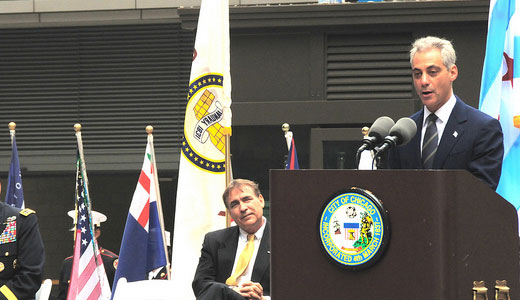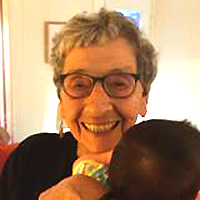
CHICAGO – On Apr. 26, Linda Hatcher, a mental health patient, protested the closing of the Woodlawn Health Clinic, declaring, “It will put our people out on the street, where the police will grab them – and maybe kill them.” She spoke at a press conference put together by Southside Together Organizing for Power, who are occupying the clinic and demanding all 12 of the city’s mental health centers stay open.
Patient advocate N’Dana Carter chaired the conference. She reminded everyone that the clinic was closed three years ago, but reopened under the influence of a powerful community protest. Similarly, she feels confident that the STOP occupation could keep the clinic open now.
Hatcher and other thriving mental health patients praised what they called the “life-saving services” of Woodlawn.
“The clinic gave me my stability, confidence, and mental health back,” said patient Dianne Adams. And, in response to Mayor Rahm Emanuel’s claim that the closings will save $2 million, Adams added, “Our health is more important to us than money.”
Ron Johnson, another eloquent patient, agreed, putting it this way: “Billions of dollars go to the wars. And now they say our cities are broke.”
Alice Johnson, program director of the Illinois Nurses Association, agreed with Carter’s optimism, and pledged the support of INA’s 5,000 nurses. “I’m here to demand that all 12 mental health centers stay open,” she remarked.
The Mental Health Movement recently released the report “Dumping Responsibility: The Case Against Closing CDPH Mental Health Clinics,” wherein they outline why they believe shutting down the facilities will negatively impact both patients and the public.
According to the report, of the 5,300 affected patients, 2,549 of them will have to travel to other cities or seek private care, because the city has no other facilities in which to place them.
Patients and community supporters originally occupied the clinic on Apr. 12, using cement, fencing, chairs, vending machines, and chains to barricade themselves inside. Outside, meanwhile, 100+ supporters sat in front of the doors to protect the occupation. This support included nurses, clergy, local residents, and other allies.
Soon enough, about 14 Chicago police vehicles – plus several County Sheriff’s Department cruisers – moved in to smash the occupation.
Police arrested 23 occupiers. The protesters moved across the street and set up tents in an empty lot. Twice, however, the police seized the tents and protesters’ personal property, arresting over 20 more people. Yet still, the 24/7 protest continues out in the open, with no protections from the Chicago weather.
STOP is now demanding that…
- …All 12 public mental health clinics be kept open, fully staffed, and fully funded.
- …Plans to privatize services at Chicago’s neighborhood health centers are stopped.
- …More doctors, nurses, therapists, and social workers are hired to service the communities.
- …The drug assistance program is reinstated.
- …The public mental health safety net is expanded to cover unmet community needs.
Emanuel’s date for six clinic closings is Apr. 30. A massive demonstration has been called for 5 p.m. on that day, at City Hall.
Photo: Mayor Rahm Emanuel. U.S. Army Public Affairs Midwest // CC 2.0

MOST POPULAR TODAY

High Court essentially bans demonstrations, freedom of assembly in Deep South

Zionist organizations leading campaign to stop ceasefire resolutions in D.C. area

U.S. imperialism’s ‘ironclad’ support for Israel increases fascist danger at home


UN warns that Israel is still blocking humanitarian aid to Gaza






Comments